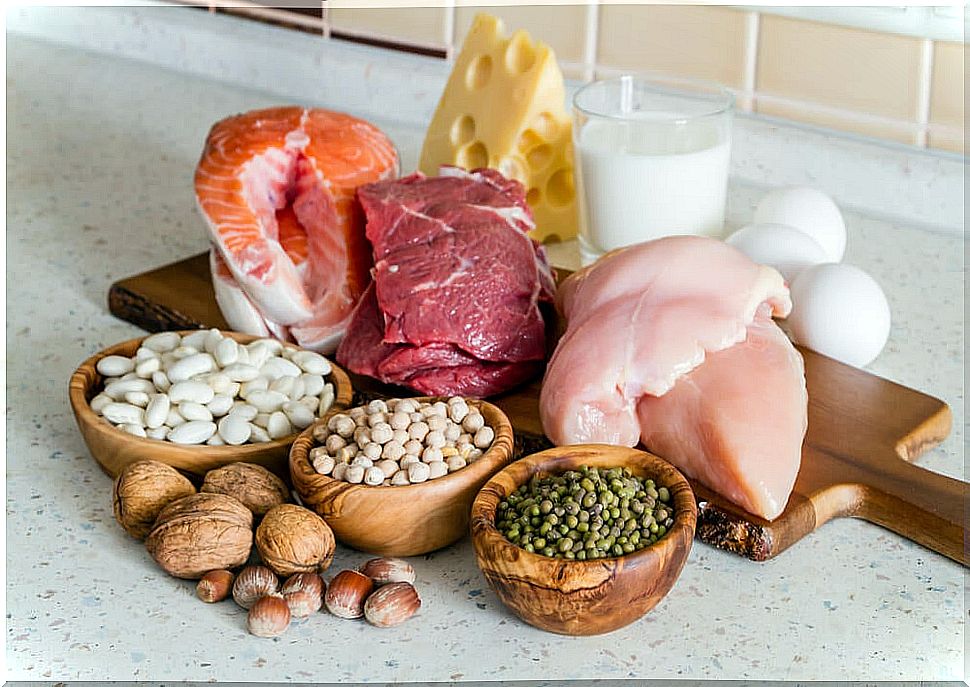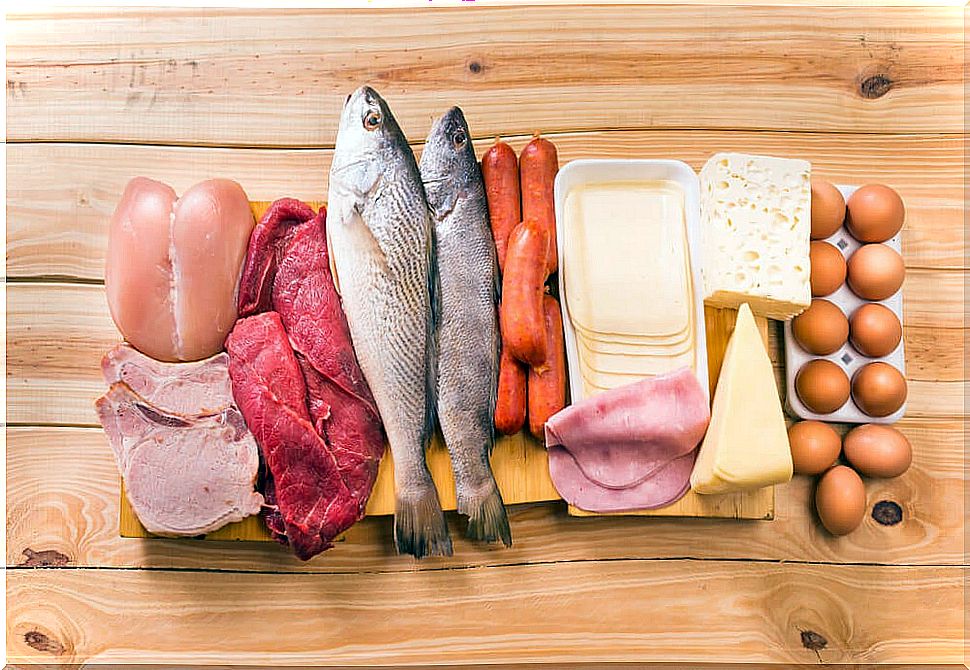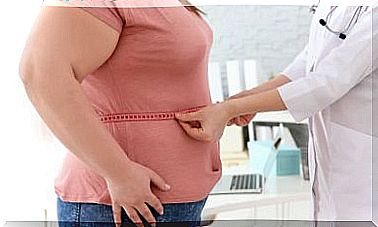Why Are High Protein Diets Satisfying?
Diets rich in protein are more satisfying than those lacking or low in these types of nutrients. We will analyze the reasons for this phenomenon and how we can take advantage of it to create a healthier diet that helps us lose weight. Read on to learn more about it.
In the diet there are 3 main macronutrients: carbohydrates, fats and proteins. The latter have multiple functions within the body, from maintaining muscle mass to participating in different hormonal processes.
The craze for high-protein diets

To begin with, we must bear in mind that a healthy and balanced diet should be one that helps us to correctly manage weight control. In this sense, we have to take into account that the body requires around 30% of the energy destined for digestion to metabolize proteins.
By comparison, carbohydrates only need about 10%, while fats require little energy. Therefore, when consuming proteins, we only obtain 70% of the amount of calories provided.
In addition, these diets could produce the dreaded rebound effect after stopping, as long as they are excessively restrictive in energy and in the rest of the macronutrients. Therefore, by changing the type of diet, the weight gain can be even greater than at the beginning of the diet.
However, the truth is that diets rich in protein help in weight loss; Knowing the mechanism by which this phenomenon occurs could lead to the development of drugs to curb the growing problem of obesity.
When we consume proteins and these are digested, a final product known as phenylalanine is released, which triggers hormones that make us feel less hungry. Hormones drive appetite by telling us when we are hungry and determining when we are full.
According to research published in the journal Physiology & Behavior, protein intake contributes to a state of satiety.
Protein digestion
During digestion, food is metabolized to be converted into substances that are easier to assimilate. These are then absorbed in a process called gluconeogenesis. That is, the formation of glucose occurs, which acts as a source of energy for the cells. This glucose is taken up by receptors in the portal vein, located near the intestine, which in turn sends a signal to the brain to start the feeling of satiety.
In this way, after a meal rich in proteins, the molecules obtained from them are released into the bloodstream. This causes mu opioid receptors (μOP) to be blocked. These are receptors that are in the walls of the portal vein, a thick blood vessel that carries blood from the intestine and spleen to the liver, leading to the metabolization of nutrients.
This is how the feeling of satiety is generated after diets rich in protein, especially if it includes red or white meat, fish, eggs and some vegetables. In fact, until not long ago, it was unknown that μOP receptors were responsible for regulating the sensation of hunger and satiety.
The consequences of a diet rich in protein

People who consume protein to lose weight are likely to see a similar degree of reduced appetite, according to recent research. This will be independent of the amount of protein they consume, within the range in which the diet is programmed.
The fact that less is more is good news for those looking to lose weight, not only for its calorie consumption, but also to achieve some financial savings.
Proteins play a fairly important role in the transmission of information in the body, even more than other types of food. In addition, after a very high protein intake, the body needs to expend more energy to burn glucose and digest these substances properly.
A high protein intake increases the information traffic between the brain and the digestive system. As a result, this leads to an earlier and greater feeling of fullness.
However, it should not be overlooked that a diet rich in protein can have other consequences that must be taken into account, especially if there are diseases or a special condition. If so, a doctor should be consulted to determine if these diets can be followed. The consequences include:
- Increased risk of bone decalcification.
- Overload on the liver and kidneys.
- Increased uric acid levels.
- Nausea and fatigue
A well planned high protein diet reduces appetite
In short, we must remember that foods such as red or white meats, sausages, fish or eggs help us to achieve a greater feeling of satiety.
However, we must always try to control the amounts and proportions well, to follow a balanced diet at all times that provides us with nutrients of all kinds.









